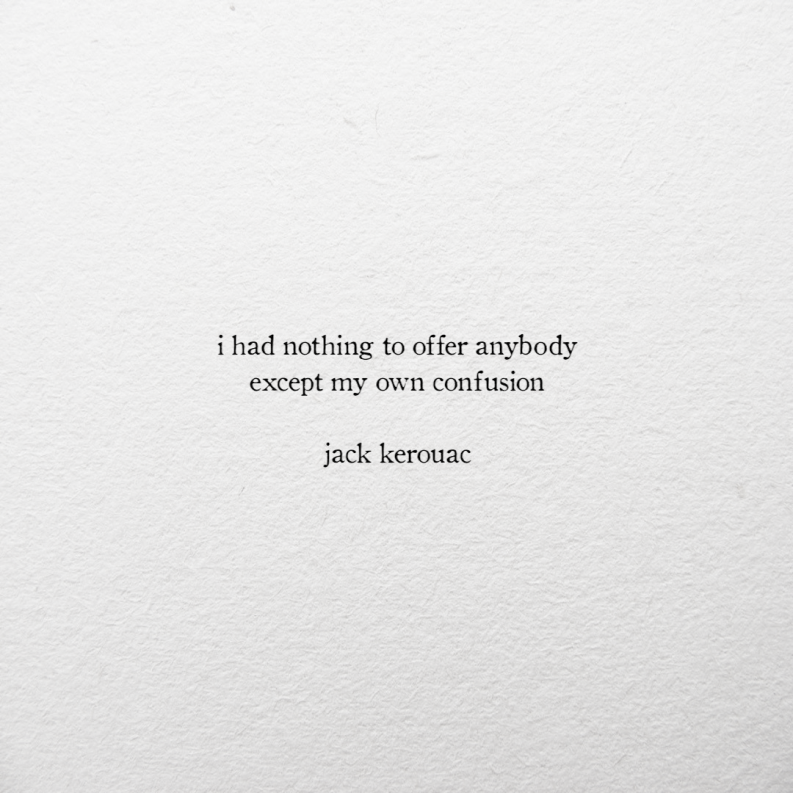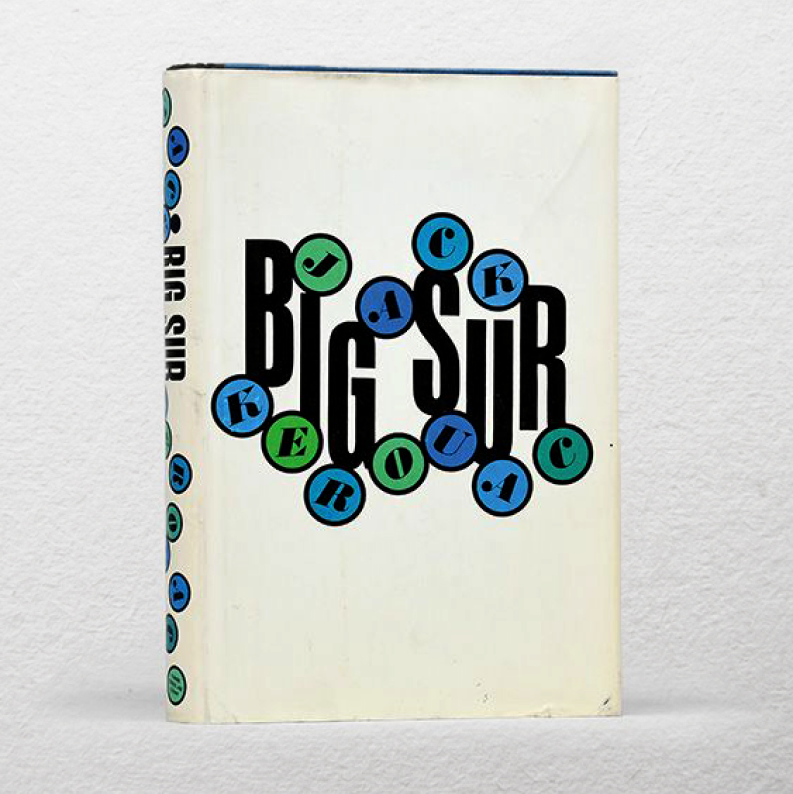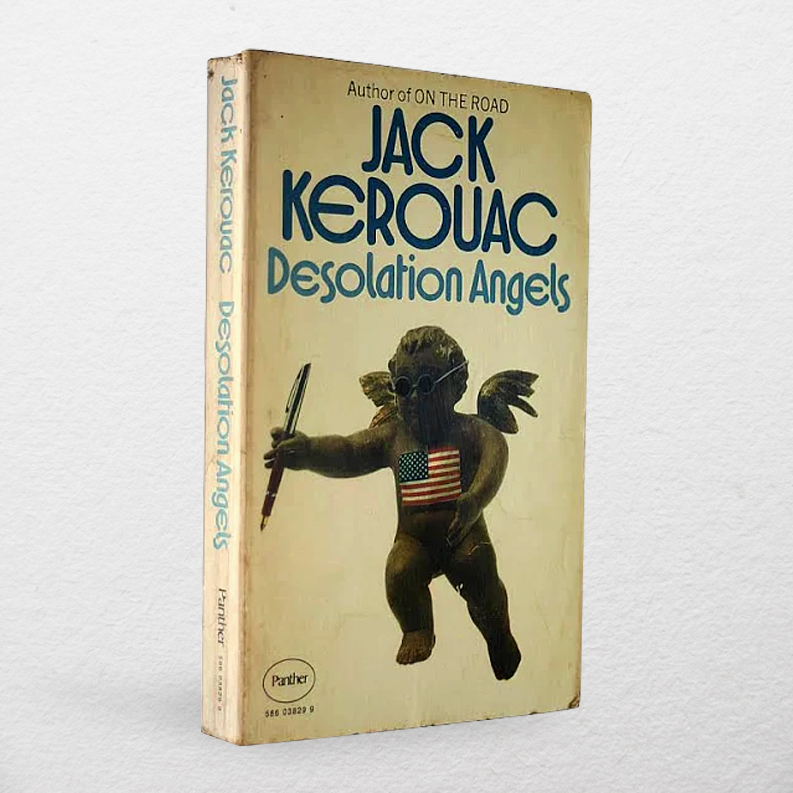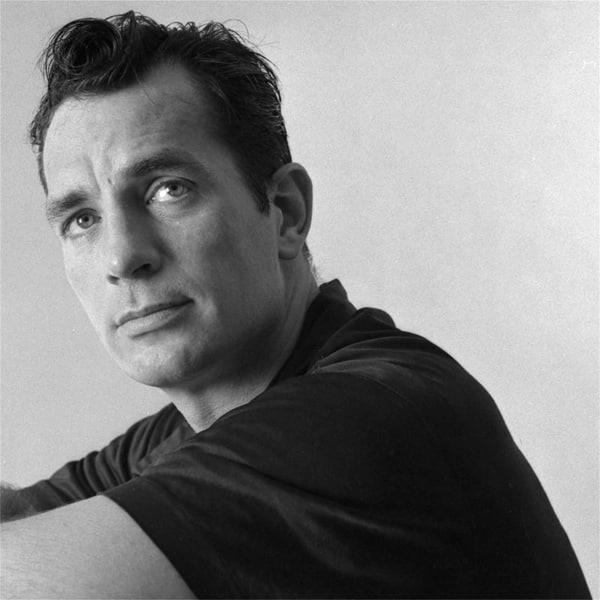Known for his involvement in the Beat Generation, Jack Kerouac left behind an excellent bibliography through his books and poems. He was often regarded as the symbol of the counterculture of the 1950s. Touching on similar themes to all of Jack Kerouac’s best books, his most famous work, On the Road, had a massive cultural influence and continues to be widely appreciated for its literary merits.
Jack Kerouac was born Jean-Louis Lebris de Kerouac on March 2, 1922 in Lowell, Massachusetts. He was brought up in a French-speaking home but learned English in school from the age of six. In World War II, he served in the Marines, where he wrote his first novel — which was finally published four decades after he died.
The first of his books to be published was The Town and the City, but it was his second book that made him a Beat icon and is still considered one of the best novels by Jack Kerouac. His deep-seated passion for writing propelled him to write twelve more books and several poetry volumes.
Did you know that The White Horse Tavern in New York was Kerouac’s favorite place to unwind? The White Horse Tavern was a famous haunt for Beat poets and writers, as well as other writers of the 1950s. The tavern retains its unique literary fame, making it a popular tourist destination to this day.
He began writing seriously in the 1940s. After he left the Marines, he founded the literary subculture known as the Beat Generation with two friends. He remained one of the main voices of this movement until his death in 1969.

On the Road is a legendary work about the search for authenticity and freedom. One of Jack Kerouac’s best novels, the book was inspired by his adventures with his friend Neal Cassady. It tells the story of two friends whose road trips were a quest for meaning and looking for a true experience.
Kerouac expertly expresses himself with a mixture of rawness, wild ambitions, and passionate love for his country. The book also showcases his deep connection to jazz and his compassion for humanity.
On the Road takes the reader on a journey that enables them to feel the desire for freedom and hope from a generation seeking a different pathway through life.
One year after becoming famous for his book On the Road, The Dharma Bums was published. Kerouac wrote this book hoping he would give a different perspective of life away from city life, hedonism and drug-taking.
Gaining new interest in the great outdoors and Zen Buddhism, The Dharma Bums presents a story of two men passionately searching for truth (or Dharma). The main adventure is the two men pursuing the Zen Way through climbing the High Sierras as they seek the lesson of solitude.


Published in 1962, Big Sur was among Jack Kerouac’s last books. It marked a slow decline in his life from alcoholism and anxiety. It also contrasted his previous strongly-held positions and youthful spirit showcased in his first book, On the Road.
In this novel, Jack Duluoz (Kerouac’s alter ego) gravitates back and forth between a wild binge-like lifestyle in San Francisco and going into isolation on the California coast, where he tries to clear his mind and renew his spirit from the madness of alcohol-filled life. This book revealed that nature was the only place that helped Kerouac find a sense of balance.
First published in 1965, this self-portrayal novel covers a crucial year in Kerouac’s life. It narrates his life story of the time that led to the publication of On the Road. The autobiography begins with Kerouac (as Jack Duluoz) spending the summer of 1956 as a fire lookout in North Cascade Mountains at the Desolation Peak.
Afterward, he leaves the isolated mountain and returns to the wild enjoyments of bars, parties, and jazz clubs of San Francisco, Paris, London and Tangiers. The novel highlights Duluoz’s attempts to free himself from the fast world but fails because he must “live, travel, adventure, bless, and not be sorry.”

Although he is best known for his novels, Jack Kerouac is also recognized for his poetry. Most of his poems adopt his free-flowing and uninhibited prose while incorporating elements of Buddhism and jazz.
For example, his collection of poems published in 1959 called Mexico City Blues comprises 242 choruses closely following jazz rhythms. He used long dashes in place of periods to achieve a jazz-like rhythm. Kerouac’s poetry mainly featured repetitions and themes of the challenges and sense of loss experienced in life.
In addition, Jack Kerouac quotes also sparked a desire to live life to the fullest and enlightened his fans in the facets of love, life, and spirituality. Here are four of his famous quotes:
is not in the passions I have
but in my lack of control of them.
for your own sins, and be sure to tell them you love them,
which you do.
and not through someone’s distorted
point of view.
are not accomplished by those who yield to trends,
fads, and popular opinion.

Jack Kerouac died in 1969 due to internal hemorrhaging, a week after his fellow drinkers beat him for antagonizing them at the Cactus Bar in St Petersburg. When the news of his death spread, his fans gave him the name “Martyred King of the Beats.”
When he died, Kerouac was working on a book that spoke about the print shop run by his father up in his hometown of Lowell, Massachusetts. It’s said that passed away drinking a combination of malt liquor and whiskey, surely favorites during his visits to the White Horse Tavern.
Our establishment continues to celebrate the legacy of Jack Kerouac’s best novels, his life, and other influential writers of the 1900s by remaining true to the heart of literary history in New York City.